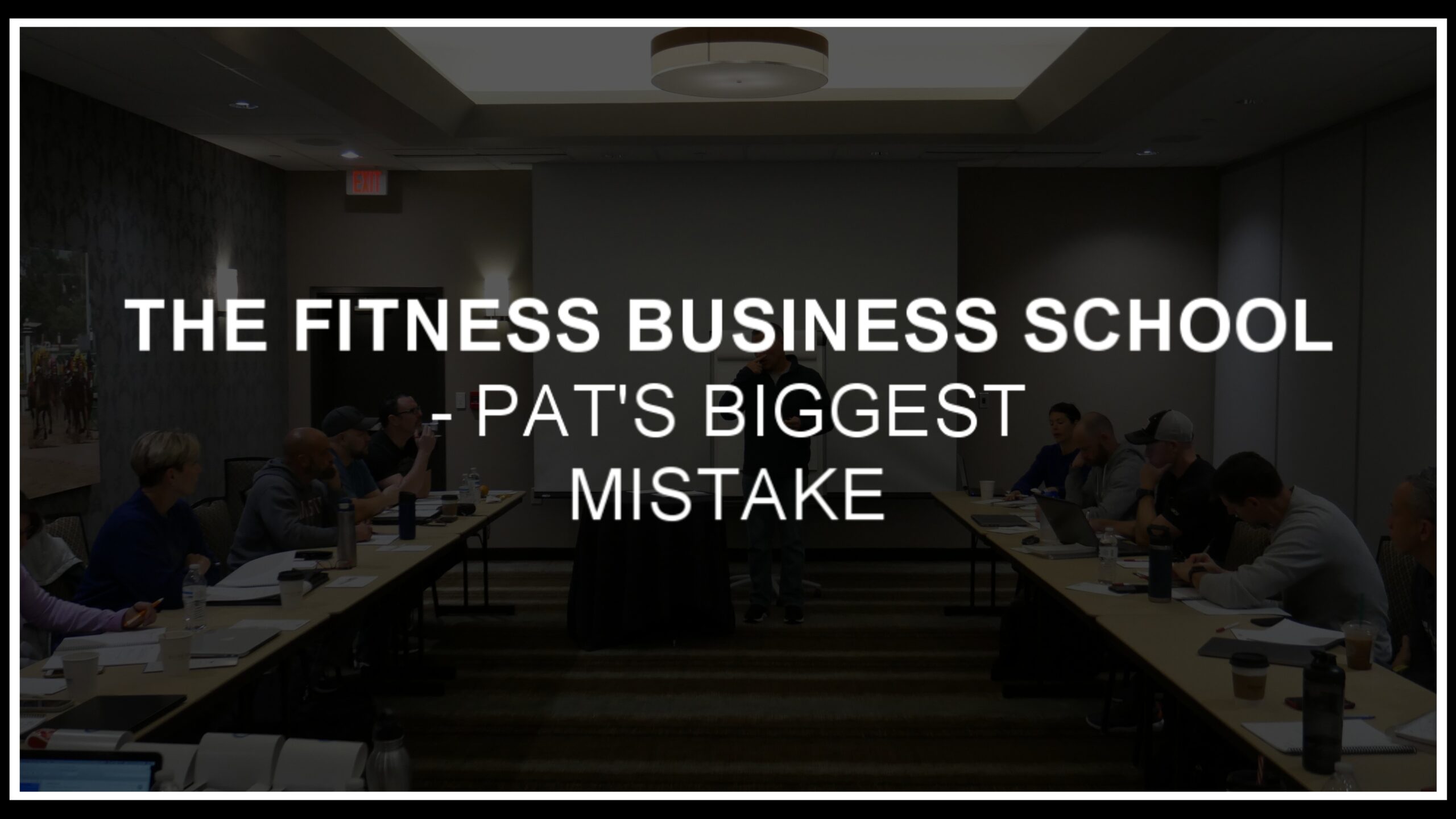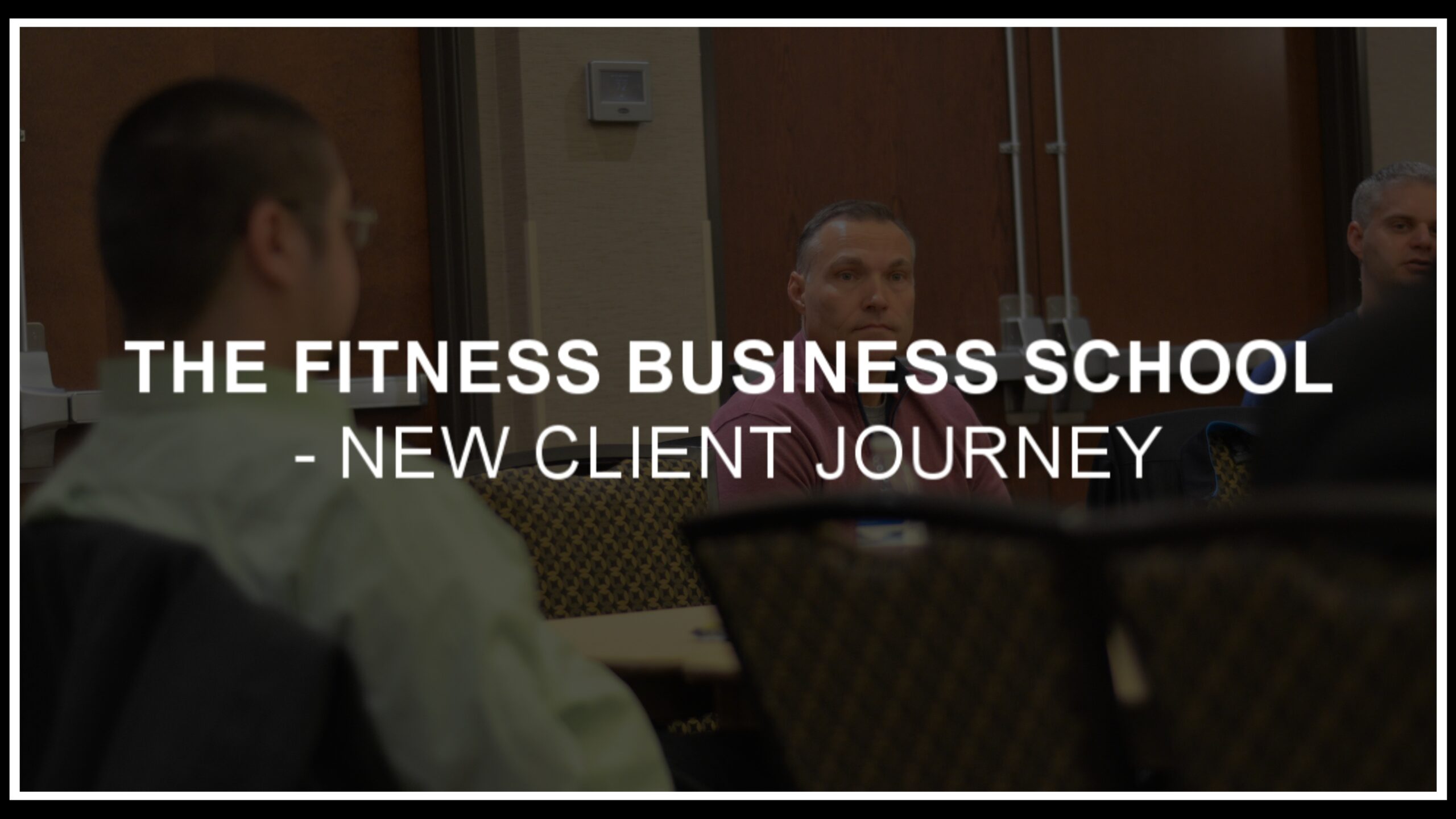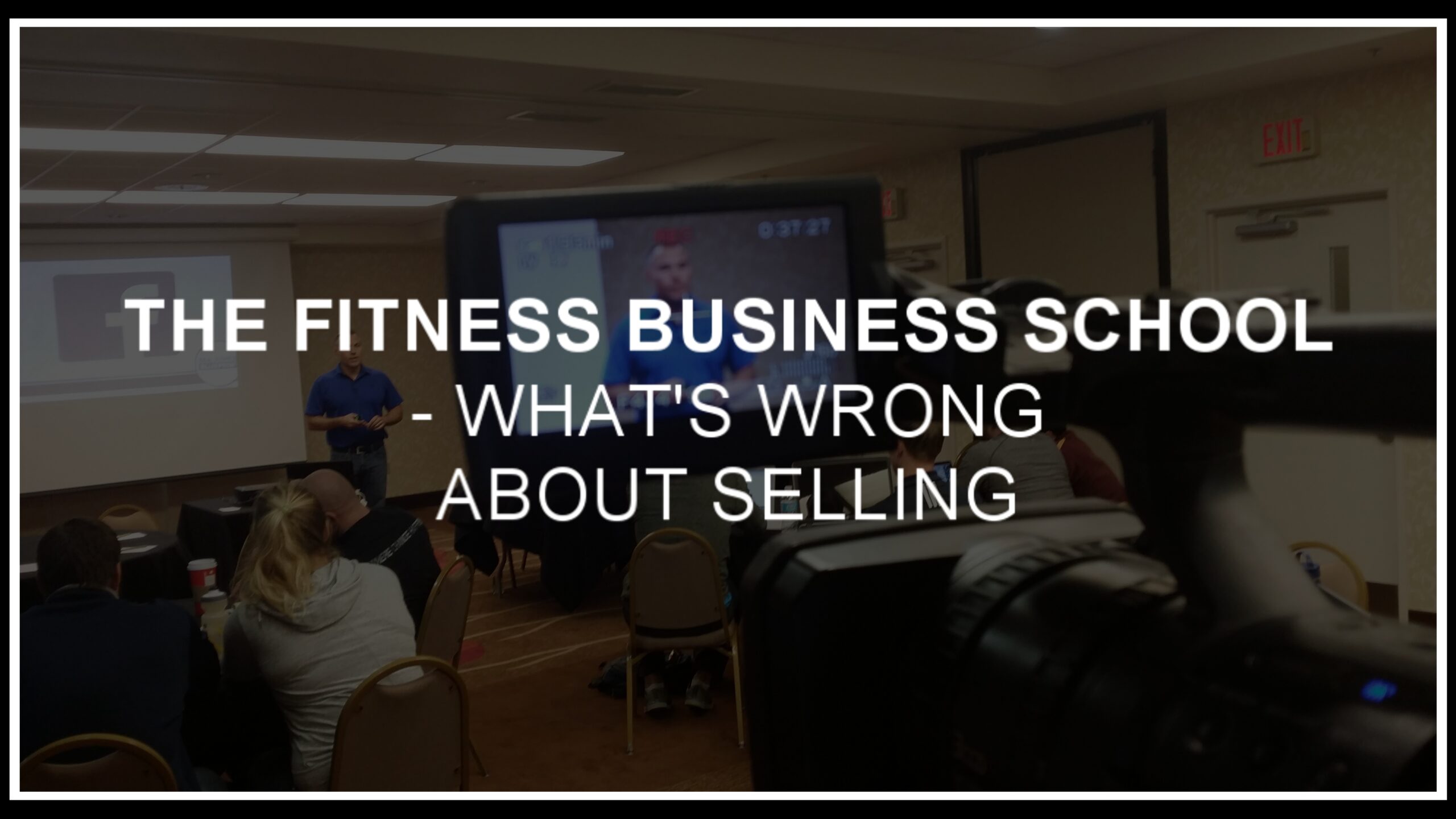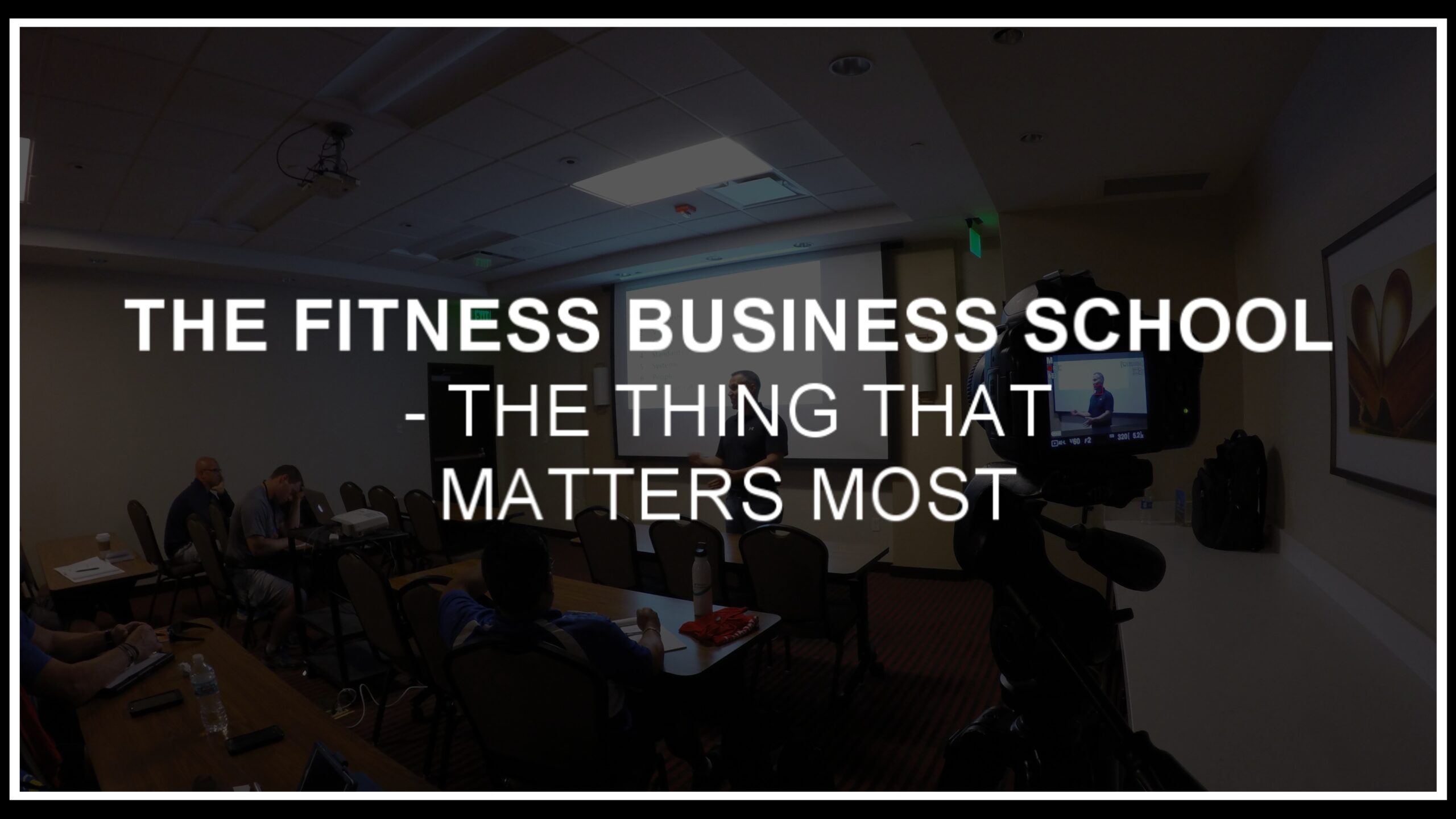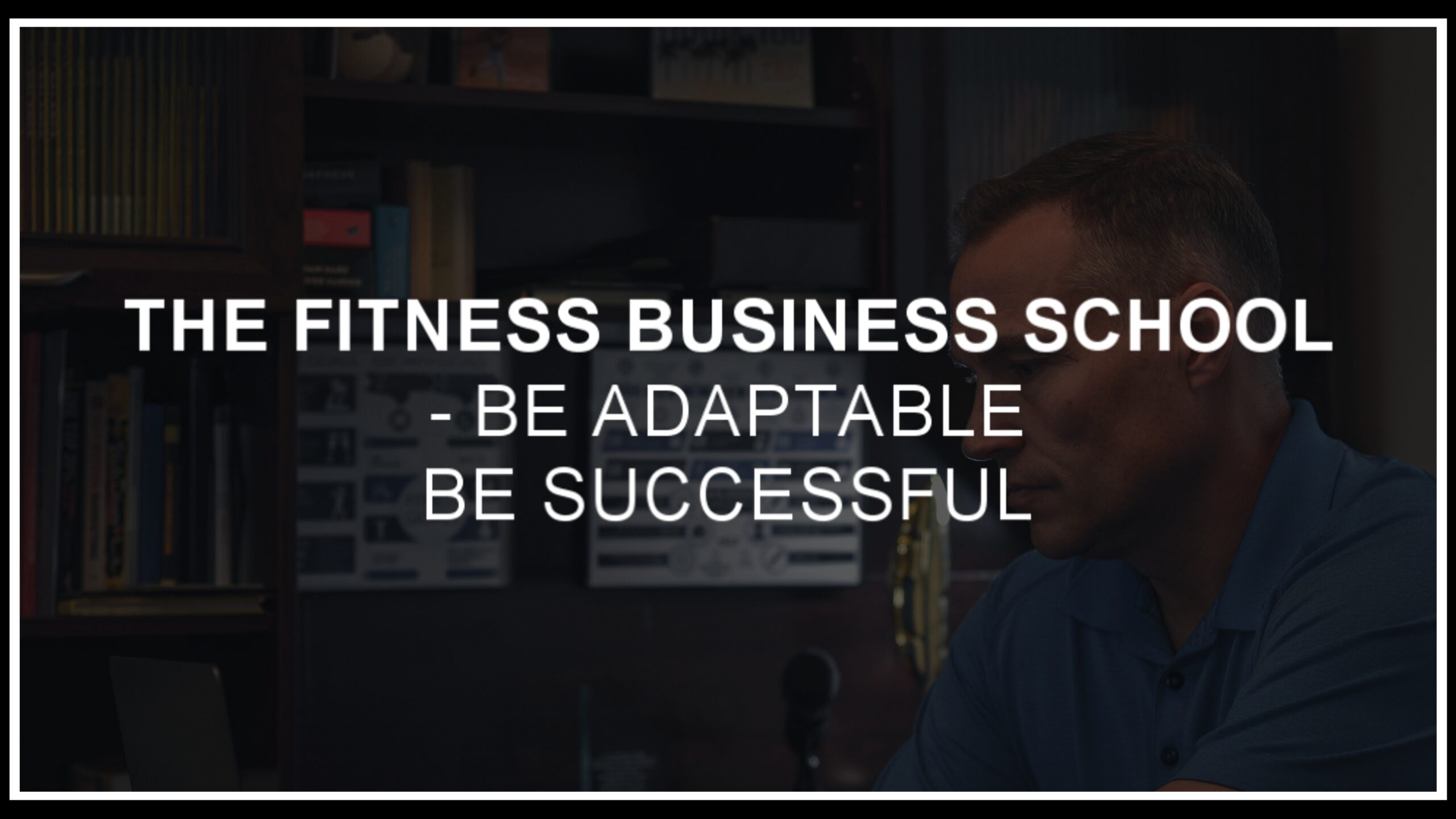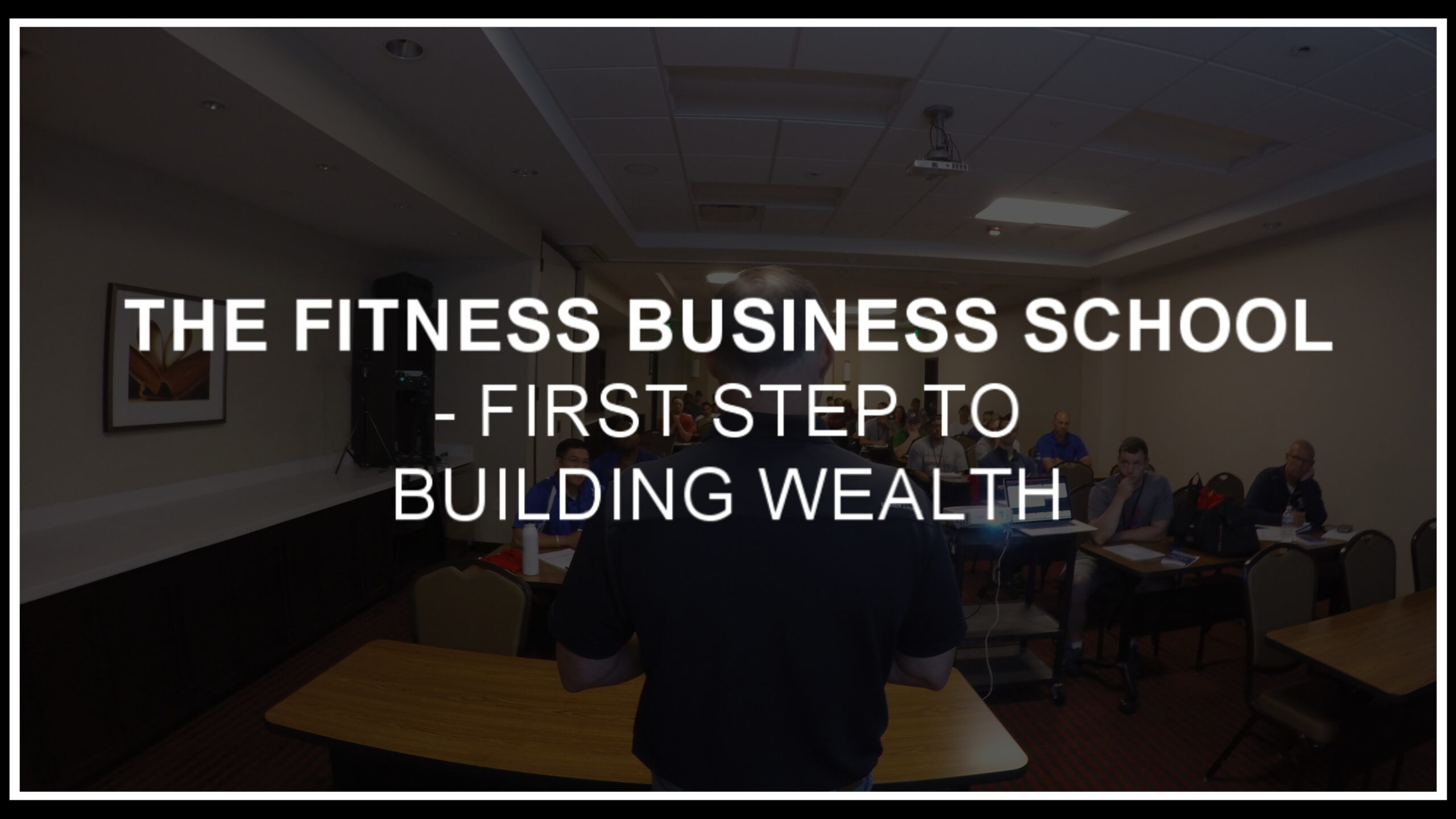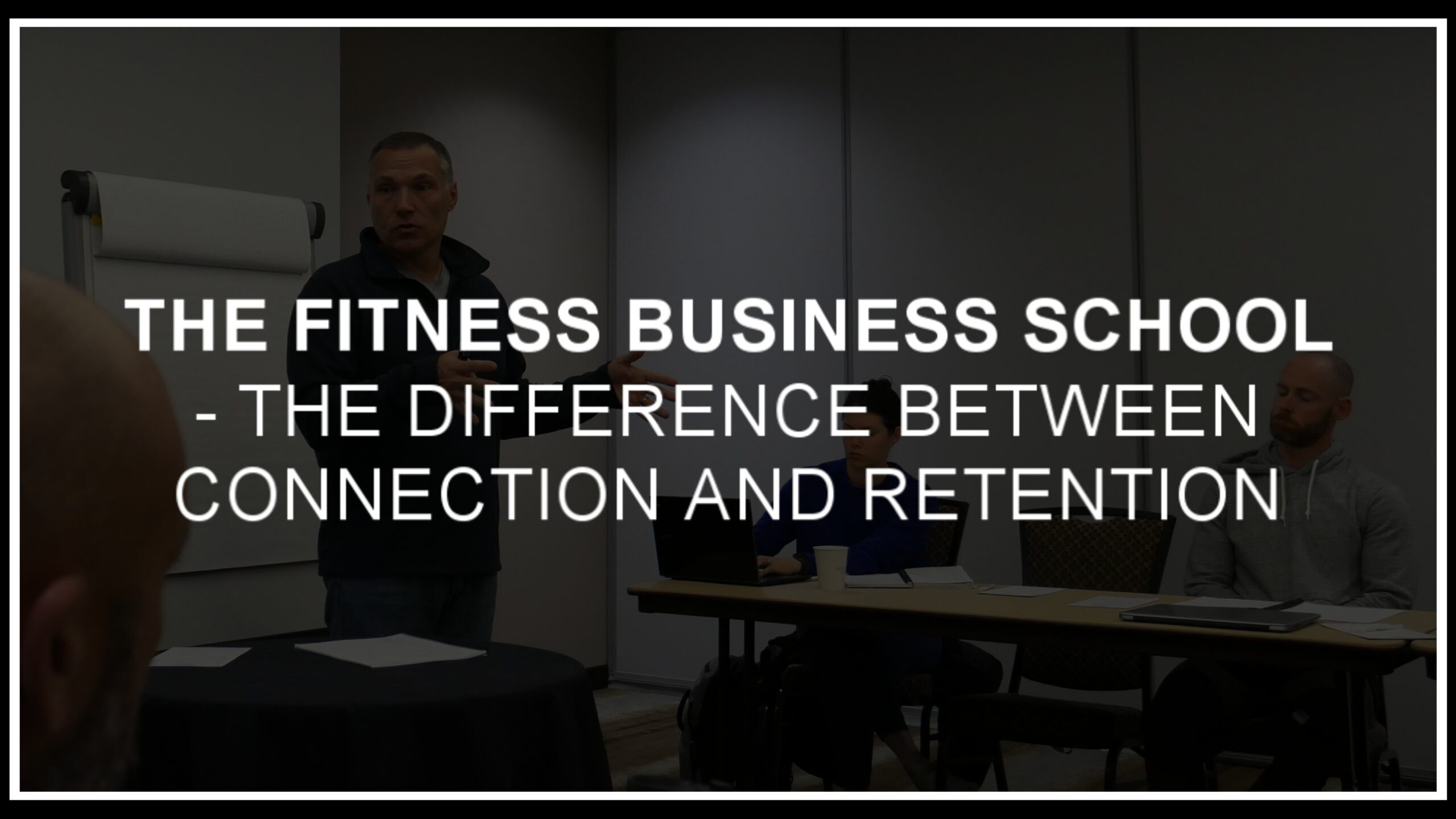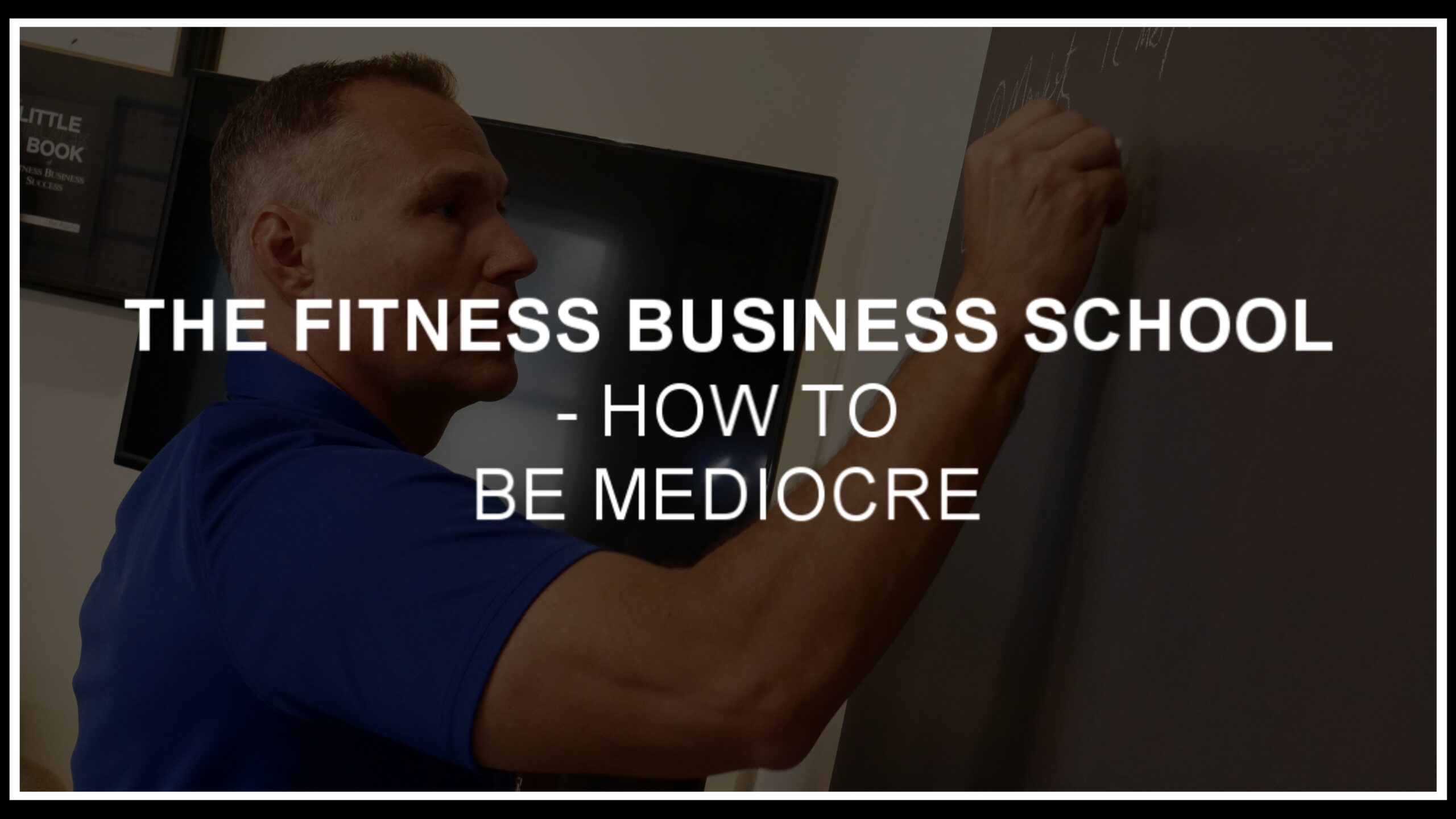P.S. – 6-Weeks of Coaching…Free.
Get a surge of new clients and revenue over the next 6 Weeks with ZERO FEE and no obligation to continue?
If you’re a current business owner who wants to add 50K or more in annual revenue over the next 12 month, you can Test Drive our coaching program for 6 Weeks with no fee or even an obligation to continue as a way to demonstrate how we can help you grow your business.
No strings attached. No obligation. You get our best coaching & tools…and hopefully, you’ll love it enough that you want to keep working together.
Would you be interested in discussing?
If so, email me here with ‘interested’ in subject line and we’ll set up a chat.
Full Transcript
Hey, Pat Rigsby here and in today’s episode, I’ve got my good friend and business partner, Mike Roussell. Dr. Mike and I have been working on a couple nutrition related products, and we unpacked that during this episode. We talk about, integrating nutrition into your business as a profit center and as a way to better serve clients and so much more. So let’s get to it.
Welcome to the fitness business school podcast. The show for fitness business owners who want to grow their income, increase their end impact and improve their lifestyle. Be sure to listen to the end of this episode, because we have a brand new special offer exclusive for listeners. So stay tuned.
All right. I am here with my good friend, Dr. Mike, and today we’re gonna kind of take a little bit of a different twist. Normally, when I have podcast episodes, obviously, the bulk of them these days are just solo, right? And, and every now and again, I will interview people, but it’s always talking about,
it seems like the business of fitness or whatever else. And man, we don’t really get too far into things that, that I’m working on, or more specifically things that Dr. Mike here and I are collaborating on. And we’ve got some really exciting things. And I thought, man, this would be a fun topic to cover in a podcast
and dig into the why and how it’s relevant. And I think there are probably a lot of lessons for people to benefit from when it comes to their own business and how they’re making decisions and how they’re layering things on. So with that, welcome Dr. Mike.
Yeah, thanks so much for having me. It’s been awhile since I’ve been on the podcast. I know you were one of the, the interviews, like when I did the interviews, man, these are the people I wanna really dig in and talk about creating your ideal business and all that stuff. And eventually I kind of just got to this place where it’s like I’m gonna treat this a little like I treat my daily newsletter where it’s just kind of almost like I thought per episode and just kind of work
through that. Yeah. I love being able to mix back in some of the, the interview format and get other people’s perspectives, but obviously this is different altogether because we’ve got some stuff that I think probably for the bulk of my audience has flown under the radar. I think that for
clients, they’re, they’re kind of aware of some of the things that we, we’ve been working on and you know, but for the most part, I would say a lot of this stuff’s kind of been behind the curtain to date. So I thought, man, we could get in and talk about some of our projects and, I don’t know, it seemed like
a really fun topic.
Yeah, no, definitely, definitely. I’m excited about it. So let’s start by talking about nutrition OS since that was the first thing that we,
we started to piece together, man, a little while back, I think we came to the conclusion that there was an opportunity in the fitness industry to, create not just a certification, cause there’s certainly plenty of certifications when it came to nutrition coaching, but a business model that
somebody could plug into their business, in theory probably even run as a standalone business around nutrition coaching that provided not only the curriculum and the background knowledge and education, but also the business piece of it from an understanding of how the business
should operate to actual marketing materials and everything else. And so, we kind of brainstormed this up and started to pilot it out with some clients. And man, there’s probably not a week that goes by. We don’t hear, from somebody in the pilot group. I actually had somebody on a Zoom
today said, man, they just moved somebody in and they’re probably, I think four weeks into their Nutrition OS program, a one-on-one client, and they’re down 12 pounds. So they’re ecstatic about it. So, man, I mean, I kind of just threw out an overview. What, what prompted your interest in us working together on nutrition OS?
Yeah, so that’s a great question. I, I think I’m always interested from a nutrition perspective on kind of the commonalities between different approaches and, what it really takes to work for someone for their nutrition. Like what really works over time with people. And as you and I were kind of
talking about different things and I think that my, my view on nutrition is very science first and then sprinkle on human behavior, but there’s a flexibility to it where it’s not keto, it’s not low carb, it’s not this, it kind of, I like to have a view of nutrition that kind of transcends a lot of that.
And as, as you and I were talking about, well how do we, how could we apply that to allow other people to use it? That really came up with this nutrition OS as as nutrition as the operating system.
You know, that this education piece that I was gonna create would then be the operating system that a trainer or health coach or whoever takes the, takes the certification and kind of the business modules, whatever they wanna apply that operating system to that it could be be a business for them. And that
there was, like you said, there’s a lot of nutrition information out there, but, educating a trainer or strength coach or a chiropractor on how many calories are in carbohydrates and you know, how much protein is in, chicken breast, like that to me wasn’t very useful. And I think you could go
on the internet and find any of that, but how do we take really good nutrition information positioned in a way that can help people, but then show on how, show them how they could apply it in a business model standing.
And that when you looked at that was really absent. I mean, I can remember even when I started nutrition consulting, I think I started when I was in, well I used to do it in college kind of on the side for fun and then really started when I was in medical school and then graduate school. Like there
was no playbook. Like I, I kind of figured it out. Like there was literally no playbook from a business perspective of how you would do this and, your business acumen and, and you just have this really nice common sense like, let’s just do these things and it’ll work approach that I think matches
with, well my nutrition when I, as we talk, you laugh cuz I always try to make things more complicated.
But like it’s the same though. It’s like, let’s kind of focus on these core principles, do these things and it’s gonna work out, but let’s continue to focus on the core components. And so I think my nutrition view is very similar to your business view, of how to execute. And so when we brought them together to nutrition OS it was really something that I think is a hole in the market. I wrote these, textbooks and the first one is a legitimate nutrition 200.
Like if you went to college and you took nutrition 2 0 1, you would learn all the stuff in this. And I wrote a book on it and we give that to people. But then we also have the second phase is called the application. Like now, because I think even if you’re not gonna talk to clients about vitamin
B12 and you’re not gonna talk to them about atp, you have to have that foundational knowledge of how nutrition interacts with the body. I think, I just think that that’s so important and non-negotiable because that’s how you get on the internet. People talking all kinds of crazy stuff that doesn’t make, that doesn’t make sense cuz they don’t have this understanding of science. So I wanted to build in that foundation, this understanding of science.
But then the second phase was then, well how do you take that? It’s the application phase. How do you take that and apply it to a person or a group of people? And that’s what that is all about is taking the science part, but actually moving it into foods that people eat and what are those strategies. And
you know, we brought in my six pillars of nutrition, the idea of the stages of nutrition. That your nutrition advice should meet someone where they are behaviorally and created an eight week weight loss course that lives on top of that, that people could just give. And I remember when I was a kid, a
college student, I wanted to go to medical school. And so I took the medical Kaplan classes and I can remember I used to drive like 40 minutes into
Rochester, into the city, and I would sit in this building and there would just be some graduate student at the front of the room, like reading pages out of a three ring binder. And I can vividly remember thinking like, man, Kaplan has nailed this MCAT thing down so much that anyone could stand in front of
the room, read the, read the book, and hand out the tests and people score better. And so that was kind of the idea when I built the, the eight week weight loss class was that Kaplan style. So, we created the handouts, we created literally kind of a transcript. No one that has delivered the course
actually read it, but like word for word. But it allowed them, I was like, when we did our first kickoff call with the pilot group and people were talking about how they had already distributed to the materials to some of their trainers and they had trainers that were gonna deploy it.
That’s when I was like, okay, this is really cool. Because not only it’s not that the, the trainer who’s the head, who’s kind of the go-getter or the leader of the business, they’re not the ones that are even gonna deploy this. Like, it’s good enough that they could pass it to someone that they trust and works for them
and they could still, help with those behavior changes and the nutrition and so I think that was, that was a really great sign that we were moving in the right direction So it’s been good, man.
Yeah, I absolutely love it because you used the word playbook along the way and I, and I think of this very much in, in that sense, but I, I mean if you wanna compare it to the traditional fitness world, I feel like so much of what’s out there is like the equivalent of like a collection of exercises, but nobody shows people how to organize it into a systematic type of program. And man, we in that first couple weeks we had people saying, man, I’ve had this certification
and that certification and I’ve had more success and selfishly made more money with this in the first two weeks if I had of being, certified and this and this and this. And, and that was kind of the idea, right? Like, because, it is great to have knowledge, but it’s also kind of walking
the, this fine line for a lot of people who are personal trainers, strength coaches, health coaches, you know, what’s your scope of practice?
What can you actually disseminate? How are you gonna do it? How do you fit it into your business when you have a core business? Because so many people just default to, nah, I’m just gonna put together some handouts or whatever else. And now, so they’ve got this, very clean framework for delivering programs. And what what’s fun is we’ve got some other things coming down the pipe. I’m, I know we’re gonna release one here, not too long after we were recording
this, where it, it just all stays congruent to this philosophy, but there are ways to introduce it to your audience, as a fitness professional, as a business owner, and make it saleable, make it digestible for the client. And man, I mean, let’s face it, I know that for so many of us, we, we all know, oh, nutrition is gonna dictate somebody’s results and this, that and the other.
But, for a lot of people it’s like, man, I just default to, hey, here’s some recipes, here’s some meal plans I pulled and used them in a challenge and it’s not sustainable. And, but man, I think this, at least from my perspective, I viewed this as this bolt on game changer that can not only serve
as an upgrade for current clients, it can be a blended thing into challenges or try type of, you know, maybe more well-rounded or complete programs. It can be a point of entry to a business for people who may have been, maybe not quite ready to start a training program, but that
have been very comfortable going to a Weight Watchers or buying some diet books or whatever else online. So another point of entry, man, I, I mean, I think there’s, for a lack of a better way of putting it, a bit of Swiss army knife, ability to, to weave this into somebody’s business.
But man, I mean, the results so far just with the pilot group have been just lights out. Everybody that’s deployed, it has been profitable. They’ve talked about the ease of e execution. Their clients have gotten great results, and man, they’re ready to run the next cycle in the next cycle. So, it,
it is been a fun thing that I think that we’ve been running kind of behind the scenes with this small group of people, but I think we’re really excited to, to introduce to a broader, audience of business owners here in the near future.
Yeah. what’s also I think is interesting when you were, you were talking about there’s kind of a limit in the fitness world for nutrition offering of, challenges are very common. You know, you give, there’s a diet plan, there’s a shopping list, maybe you’re doing, one-on-one, consulting about for someone. And, and it’s not really scalable. And I thought it was super interesting when we first deployed this with people with the eight week challenge that they were going, there’s no, there’s no shopping list and there’s no diet plan. And when they were reading the materials, they came back, a lot of people said, well, look, my members are used to, they’re used to a diet plan. They’re used to foods to eat foods they can’t eat. Like we don’t have any of that on here. Like, what’s, what’s going on? And it
was, it was good for us to be able to say, well, hey, we’re, we’re actually looking at this a little bit different on how can we sustainably help our client bases.
And the whole, that whole course is about looking at, it’s what I call this diet audit, like looking at what people are eating, how they’re doing it, and then having them identify with your support where the areas that they can make positive changes and then helping them put those, those changes
in. And it gets the, the end user like that client so much more engaged. And that just helps them from a stickiness perspective for their nutrition, but then also for their relationship with the trainer and it turned out to be, a huge win-win all around for everyone. Well, I’m excited to, to roll this out on a grander scale. I think this is, a real difference maker. And Phil’s, what I think has been a pretty big gap in, in the industry. And it’s not that nobody’s
kind of danced around doing it, they, they’re PE people who’ve kind of touched on pieces of it, but I don’t think anybody’s put it together in this fashion.
Yeah, yeah, no, I agree. It, it’s been great so far and, and I think that, once it kind of general leads to the public, it’s gonna be even better.
So, so that’s kind of the first leg of, what we started co collaborating on. And I think it opened the door for a second leg. So let’s, let’s talk about substance nutrition and kind of its origins, because, you’ve been dealing in the, the retail side of the nutrition world for a while
rather than I, it’s broader than just supplements because obviously you had coffee and that sort of thing. So why don’t you, share a little bit of a backstory there, if you don’t mind? Yeah, so I’ve, I’ve spent a long time over the last six, eight years actually in the product development
business as part of some of the consulting work that I’ve done working on developing frozen food products and, and actual food meal programs, and then also dietary supplements, helping consult on research programs around dietary supplements, or are we asking interesting questions that could
then not only be beneficial from a science perspective, but then provide the company useful information to talk about in their content marketing and that they could share with their customers. And, so I had met some people that were like, Hey, we should do this together. And, and so I
formulated a product that maybe many people are familiar with, new teen and and then also neuro coffee, which is a functional coffee. And then after we, we went, we ended up licensing new teen to a publicly traded company.
And so essentially exited that, that brand. And so that was really exciting, but neuro coffee was kind of left on its own. And then I had also kind of in parallel for a while been thinking about a couple other products, one of them being a protein powder because the idea behind neural coffee was you’re
gonna drink coffee, and so if you’re gonna drink coffee every day, you might as well make it even better for you. Like it’s that simple low friction, like let’s enhance how your, your brain grows repairs, neurons, and help improve kind of that long-term cognitive health on the protein. Like I would
say the analogy is this idea of having protein in every meal. If you do that versus a little bit of protein at lunch, a little bit of breakfast and a huge protein donor, you basically increase protein synthesis by 25% over the course of the day. It’s not gonna turn you into chronic Coleman by tomorrow. Like the effect actually on
your muscle is small. But over time, that effect, compounds into something really significant and that maybe it can actually help negate that age-related muscle loss, or at least slow age-related muscle loss, by this simple daily change. So the idea of neuro coffee was the same. Like if we
can stimulate your body producing these compounds that help your neurons grow and repair over time, that’s gonna have a big impact. So tangent. So, but the, so then the idea was, well what are these, what are other products that people use on a daily basis that we need really good versions of? And you
know, protein powder is something I’ve used on a regular basis since I was probably 15 and back then it was terrible, but if you start asking the right questions from a manufacturing perspective and really hone in on what are we trying to get out of this protein powder, you end up coming up with something different
than is what’s generally on the market. And so I had actually formulated, came up with a sample formulation that was similar to, to what we have now for Men’s Health. They were gonna launch a supplement line and I was starting to working on formulating that, some things happened that the
brands got sold and, and it kind of never really worked out, but I still had, all that. I saw that work kind of sitting in my back pocket and one day I just decided like, Hey, let’s do this. And so I, I got in touch with a friend of mine who’s a certified master chef that I’d worked with a bunch.
So he’s like a culinary genius and said, how do we make this taste really good, but meet these nutritional criteria which are important to me. And then also the no artificial flavors, no artificial sweeteners, no additives, no preservatives, which is, really important to a lot of people as well. And it needs
to be 30 grams per serving cuz that’s what makes sense in science and, these are the proteins that I need to use. So I kind of was like asking for the moon and it took us like eight months and we worked through it with like also this great development team. And then I was thinking, all right, so we
have a great protein that is used as the two hot, two highest quality kinds of milk protein, whey protein, ice isolate, my cellular casin, no artificial flavors, no artificial sweeteners, no artificial colors, no preservatives.
This is something that like my kids who are very athletic and like I would give these to my kids, you know, I would give this product to my kids, but I’m like, what else? I mean, like, I trust myself, know the manufacturing process, know where we’re sourcing it, but what would we, what else would we need to
do to make this so other people would have that same level of trust? So I’m like, well, we need to go get this third party certified to be free of band substances. So then we went out and every batch is then tested, it’s called Informed Sport. So every batch is third party tested for over 250 known band
substances. everything that’s on like major league Baseball, NHL, NFL, like everything that’s on all their lists is all tested in this. So we ended up with this protein product called Synthesis and name the company Substance Nutrition, kind of with a tagline to live a life of substance that this was
something that was gonna really help you reach your goals, whether it’s a health goal or a physical goal.
And you could feel really good about it, you could give it to your kids and feel really good about it because it really is at that highest level. And unfortunately in the supplement industry, just the way it’s regulated, it’s not necessarily bad. It, it can be, but I went through all these hoops, uh,
because it was important to me. Yeah, I could have easily produced a protein powder in three weeks and not have gone not have gone through any of those hoops. And so those options are out there and when you go to the grocery store, like, or the supplement store you can’t tell like
a product that took two weeks or a product that took nine months and, and kind of has everything we talked about. It’s so hard to tell the difference. So that was, where, where synthesis, we call it synthesis, really came from and substance nutrition of which now neuro coffee is, is part of, and we
have still a couple other products too that are coming down the pipe, that are everyday use products. Initial one, next one is gonna be focused on enhancing immune function, through, optimizing the bacteria in your, your digestive system. So we’re pretty, I’m pretty excited about that
too.
Well, I mean, for me, the way that you just articulated that probably was the most attractive piece of, why I would wanna be involved in something like that because it, it kinda speaks to my anti shiny object mentality that I tend to, talk about a lot on the business side of things, not
getting caught up in this fad, this trend. What are, it’s the behaviors that, that we, you know, the behaviors that we really make part of our daily lives, the compound are the things that, you know, we’re, we’re eventually going to reap the rewards of or suffer with consequences of, I guess Yes.
But, so for me that made all the sense in the world that line of thinking that that kind of foundation that the business was built on.
And then, I felt like, okay, if I’m going to make this something that, I’m gonna be trying to, share with the people that I’m coaching, to be part of their business, I
kind of spoke to that same mentality. It spoke to that same thing that we talk about very regularly. Like, let’s build on a solid foundation. Let’s make the right decisions over and over and over and just incrementally gain ground towards our goals. And so I said made all all the sense, all all the sense of the
world.
You couple that with the fact that, you kind of hit on both sides of the things that are probably, top of mind for me, just turned 50 this year. So the aging
piece of things, both physic physically and cognitively very important so that, that side of it, and then the sports side still very involved in, sports at a variety of levels. So, and, I mean, it kind of checked all the boxes. So I was excited, when the opportunity presented itself to, to get involved and kinda make this run alongside nutrition os because it shares a lot of that same kind of foundational belief system. Like, hey, we’re, we’re building on things that are, are
real. They’re rooted in, science, they’re, they’re things that you can came on that they’re, they’re, I don’t know if timeless is the right word for anything because things are ever evolving, but they’re very durable philosophies, right? Like they’re, yes, everything has a lot of, substance to it. How about that as a plain words?
That’s play words. I think also how we’ve gone about substance nutrition from a business perspective is really rooted in partnerships. And I think that also says a lot to what we’re trying to accomplish or who the people we wanna work with because it’s all too easy. I’ve definitely been in those meetings and in those rooms where it’s like, okay, well how many bottles can we sell this person when they come to the website? What’s the most amount of money that this
transaction could be? And, and let’s hope to do this again 7,000 times tomorrow. You know? And it just, none of that has ever sat well with me. I can remember, look, I went to a meeting down in Philadelphia and I went and I left the room and I was like, oh my God, I need to take a shower.
Like, it was just, and unfortunately, like that part of the world is there, and I think with, with substance why it’s, the two of us work well so well together is it’s thinking about who do we have good relationships with that we could then work with to, help them. And then, that would also then help us on the, on the substance side. And, and that’s really how all our weekly conversations, are about, and that to me is, is super important. You know,
you talk about a lot the ideal business and, and I think going at it from that way where everything is, how do, how is this win-win for everyone and that’s super important on my end.
So to kind of tie this back, like when, when I started talking about this, when I just kind of introed the podcast, it was like, okay, maybe you could see how this lines up with your business to, regardless of if you’re talking about nutrition or supplements, I mean, there, there’s some things that I, that I feel like could they certainly transcend these specific businesses, right? Like the first being, knowing what else your, your clientele, your, your client base needs to reach their
goals. And so many of the people that, that my audience would work with, right? The fitness audience, the strength and conditioning audience, the, the health audience. I mean, obviously nutrition plays such a profound role in the people that they’re serving in, in the outcomes they’re trying to
achieve. So just kind of dovetailing with the things that they’re already doing, being able to be more of a resource for, the people that I’m already serving.
it, but in a way that is completely congruent. It’s not this kind of just bolt on cash grab type of thing. It’s like, man, I mean, to, to give you an idea of how little of a cash grab it’s been. I mean, we’ve been piloting this thing for basically a year. Trying to refine it and get it the way
that we wanted it and rather than just roll it out and, focus on the, the front end promotion.
So, I think that’s the first part. I think all of us, if you’re listening to this, you probably have a business and you probably have people you’re already serving, it’s like, okay, how can you serve them better? What other things would make their life easier? What other things would make
it easier for them to achieve their goals? Would it lower the friction between where they are and where they wanna be? I think that’s a big piece
of it. The second part in both of these, whether it be nutrition OS or substance, you know, I think the, the kind of having your guardrails in place when it comes to values, when it comes to what’s important to you when you’re making business decisions, I think we’re in an interesting, spot
in the fitness industry because we are, seen as a trusted expert when it comes to a lot of health and fitness related topics or strength and conditioning related topics. And invariably you’re gonna be pitched a host of things, whether it be people who are involved in direct sales or m MLM stuff who see
you as a vehicle to reach a new audience or, other people who just kind of want to get at your clients or players or whatever.
And some of those may be right in line with your way of thinking, your, your method of operating. But I think that you have to be really careful because a lot of times, you spend a lot of, lot of time building up goodwill. So anything that you introduce is either going to, be a deposit in that
relationship bank account or withdrawal. And so, being really picky, I mean, if you think about this, from my perspective, I’ve been a business owner in the fitness industry for basically 20 years now, and this is the first time I’ve ever had an ownership stake in a supplement company. And I
don’t think that’s an accident, right? Like, I think that it’s just, man, you gotta pick your, pick your spots and know what’s congruent with the other things that, that, that you’re doing. Because for me, the relationship with, with the clients is the most important piece of the puzzle. And I
can’t introduce something there that might deteriorate that for some sort of short term gain. And that kind of brings me to the last part, the relationship side of this. And I think, Mike, you did a wonderful kind of, I guess way of talking about this is the business of substance nutrition being
relationship driven, but I think all of this, I mean, this starts with our relationship. Heck, we were, I remember publishing some newsletter stuff, heck, it’s probably been a decade ago now, right? Yeah. Like through an, an old company of mine. I mean we’ve known each
other for a long time. We’ve collaborated on projects before. It wasn’t just, this quick decision, it’s a relationship that certainly, developed over time.
And the, not only is that like the, the foundation of the business, but everybody that we launched Nutrition OS to the pilot group, somebody that I had a preexisting relationship with, so we could really kinda get under the hood and know what they needed and get honest feedback to make it better. And
now what we’re doing with substance, it’s that kind of same thing. Like, okay, who can we go to that we see is partners in this to yeah, to get this out to the right clientele and hopefully, make a difference for a lot of people. So, that’s a lot of stuff, but hopefully you guys listening in can
take away some of the very direct business lessons there as well as, maybe understand some of our way of thinking here. And the, the stuff that I think has helped, I don’t think it’s an accident that both of us have been doing this. Me, I’m a little bit older here, but, you’ve been
doing this for a long time to be able to stay the course in this industry when a lot of people seem to come and go pretty quickly. Hopefully you can understand some of our way of thinking that have probably been key to that as well. So, Mike, any closing thoughts before we wrap
up?
No, I think that, you really, the part that you emphasize about trust and, and having that trust and, and where do you share that trust is so important. And I think that when we first launched Nutritional OS to the pilot groups, like it was all, that’s what it was all about. It was all about trust. Like
here, trust that this is the science and, and we know how to do it and trust that we’re gonna be able to help you with the marketing. And it’s a really effective formula if you can find the right people to trust. For sure. Well, man, I appreciate you jumping on and, kinda just diving into all this stuff with
me today. It is, it’s a lot of fun because, we talk about it in private, but it’s fun to share this stuff with, with everybody else because I’m sure there are plenty of takeaways that benefit them. And, you know, I, if you guys have any interest in learning more about any of the things we’ve talked about,
nutrition OS substance nutrition, shoot me an email at [email protected]. I’m happy to loop you in and, and tell you what we’re doing and kind of tell you where we are in that journey as far as bringing other people on to, whether it’s to be part of the Nutrition OS group as we get ready to roll
this out on a grander scale or, people we’re partnering with with substance. So, yeah, I’d love to talk with you more about it. It’s obviously a big part of what’s going on in our world. So Dr. Mike, thanks for joining me today and I’m sure we’ll be back again with an update before too, too long. Okay.
All right. Thanks for having me. Sounds great.
Thanks for listening to this episode of the Fitness Business School. Before you go, I have a quick announcement. When I first connect with a fitness business owner they almost always ask me, “How can I get more leads or how can I get more leads and client?”
Well, I have an exclusive offer for you, and it’s gonna help you do just that.
As a listener of this show, you can test drive our Fitness Lead Academy coaching program for a full 30 days for just $1. FLA is a one of a kind program where you will get done for you marketing tools each and every month, plus coaching to help you execute everything you need to do to generate leads and convert them into clients.
It’s unmatched in our industry, and it’s gonna help you bring in the new business that you need, ultimately making you more revenue and personal income. Imagine having every tool template, add social media posts and script, you need all proven to convert and ready to use.
Plus you have access to coaching calls every week with the same people who run my ads and do my
marketing. So that I trust them because this is who I put my livelihood in the hands of.
Everything that you need to know to dial in your ads, to maximize your follow-up and convert
clients, you’re gonna have the tools and the coaching you need to be successful. You get all of this and
more when you join FLA.
And to help you succeed, I’m going to let you test drive FLA for 30 days for just $1. If it delivers for you, the way that I expect and more than pays for itself, you’ll likely wanna stay. If not, you’re out nothing. And you’ll have a library of proven tools and resources to keep.
To take advantage of this special offer – just email me at [email protected] and put TEST DRIVE in the subject line, and I’ll get you all the details.



